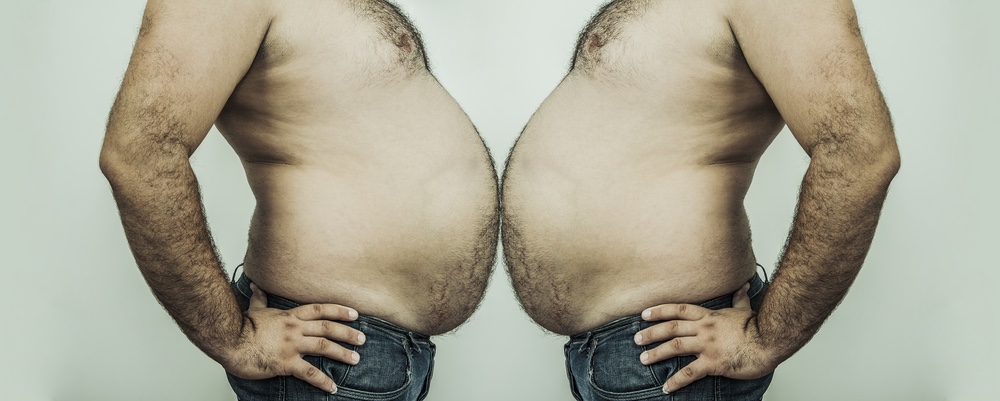Guys Give Each Other a Break on Weight (But Not Women)

When judged on attractiveness, men get a pass from other men about their weight, a new study finds.
Men and women both judge other women as less attractive the fatter they are, scientists have found. And women knock points off a guy's hotness score if he carries extra pounds, too. But when men judge men, their ratings of attractiveness don't differ regardless of how high the other guy's body mass index (BMI) is.
"Maybe some people think beauty matters more for women than for men, but here, it's that this gender difference is more at the source," said study leader Sonia Oreffice, a professor of economics at the University of Surrey in the United Kingdom. "Basically, the gender of the assessor is the one that matters, too." [Busted! 6 Gender Myths in the Bedroom & Beyond]
Looks matter
Despite the admonition that books shouldn't be judged by their covers, social science research suggests we live in a shallow world: People who are prettier tend to earn higher wages than those less blessed in the looks department. This beauty effect seems to hold for both men and women, according to an influential 1994 paper in The American Economic Review. Lab studies have found that people are more willing to cooperate with people they see as attractive; mock hiring studies have suggested that a pretty face can elevate a mediocre résumé and land the candidate in the "interview" pile.
Similarly, weight can also influence career success. Studies have found that a high BMI, a measure of body weight relative to height, is associated with discrimination and lower wages — a stigma that might even determine whether someone is declared guilty or not guilty in a criminal trial, according to one study.
Oreffice and her colleagues had been studying the links between BMI and the labor market for some time. But in their new research, they were able to combine attractiveness and weight data in a nationally representative survey of Germans.
Sign up for the Live Science daily newsletter now
Get the world’s most fascinating discoveries delivered straight to your inbox.
"We can basically analyze the relationship between attractiveness and body mass index," Oreffice told Live Science.
The researchers used data from the 2008 and 2012 German General Social Survey, which includes demographic information as well as one unusual measure: Before the face-to-face survey, the interviewers who administered the survey rank the interviewees' physical attractiveness on a scale of 1 to 11.
Eye of the beholder
The ranking is subjective, of course. But knowing the characteristics of the interviewers lets the researchers investigate the interactions of gender on how people evaluate one another. They found that BMI is part of people's mental calculus when ranking attractiveness of the opposite sex. Women also accounted for BMI when judging other women's hotness. But men didn't use BMI when gauging another man's looks, even though weight was a key piece of their decision when judging women.
"For the men, we find that whether his BMI is considered 'bad' or not in terms of attractiveness depends on the gender of the assessor," Oreffice said.
The researchers aren't sure why this gender difference emerges. BMI is an imperfect measure of fatness, Oreffice noted. A particularly muscular person can appear to be overweight or obese according to the BMI numbers, even if they're very lean. That "muscle factor" might be more salient for men than women in the sample, she said, though that doesn't explain why men and not women would perceive higher-BMI men as more muscular and less fat. [The Best Way to Lose Weight Safely]
Attractiveness ratings could explain 19 percent of the variation in female wages and 23 percent of the variation in male wages in the sample, the researchers reported online ahead of print in the September issue of the journal Economics & Human Biology. BMI wasn't directly linked to wages in women, but it was linked in an inverted-U pattern for men. In other words, men on the low and high ends of the BMI spectrum had lower wages than those in the middle.
The researchers limited their analysis to German citizens born in Germany who were between ages 25 and 50, because they did not want attitudes toward immigrants to skew the attractiveness ratings.
The results linking BMI and attractiveness reveal that it's not enough to simply equate the two, Oreffice said.
"What is considered beautiful or attractive depends on the gender of the assessor," she said. And that could mean that the gender makeup of interview panels might influence how job candidates get judged.
"If women are evaluated by men — let's say, most of the time — and then men also evaluate men, then clearly, there will be a divergence in terms of the assessment," Oreffice said.
Follow Stephanie Pappas on Twitter and Google+. Follow us @livescience, Facebook & Google+. Original article on Live Science.

Stephanie Pappas is a contributing writer for Live Science, covering topics ranging from geoscience to archaeology to the human brain and behavior. She was previously a senior writer for Live Science but is now a freelancer based in Denver, Colorado, and regularly contributes to Scientific American and The Monitor, the monthly magazine of the American Psychological Association. Stephanie received a bachelor's degree in psychology from the University of South Carolina and a graduate certificate in science communication from the University of California, Santa Cruz.










